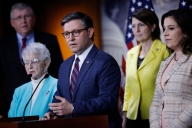You have /5 articles left.
Sign up for a free account or log in.
A proposal expected to be ruled upon by the Education Department soon, to waive measures of institutions' financial health for three years, would mainly help troubled for-profit colleges, according to a report released Tuesday by the progressive Center for American Progress.
In question is a controversial request for the waiver that the National Association of Independent Colleges and Universities and the American Council on Education made in March. The groups raised concerns that the financial impact of the coronavirus pandemic would hurt the financial responsibility scores of institutions. Those that fall below a threshold would be barred from offering distance learning.
Though the associations represent nonprofit institutions, the report found that the "main immediate beneficiaries of relaxing oversight would be troubled private for-profit colleges; this move would give a free pass to colleges that were facing challenges well before the pandemic began."
The report by the center’s vice president for postsecondary education, Ben Miller, acknowledged the “Education Department’s financial monitoring process is by no means perfect.” But “waiving those tools now would be irresponsible,” it said. “Pausing financial oversight of private colleges could increase the odds of unexpected closures, leaving students to transfer to another institution on their own and taxpayers to shoulder the full cost of canceling loans,” the report said. Miller also argued that because of a lag in reporting, institutions face no immediate threat.
Miller instead endorsed provisions in the HEROES Act, the coronavirus relief package approved by the Democratic-controlled House last month, which aims to offer some relief to distressed colleges and provide additional protections for their students.
Currently, when institutions' financial responsibility scores fall below a threshold, they are required to take steps like obtaining a line of credit in order to continue being able to receive federal student aid.
Because institutions in danger of failing have trouble getting credit, the HEROES Act would instead waive the requirement for private nonprofit institutions. It would require those with failing composite scores, or with insufficient liquidity to fund six months of operations, to come up with a plan for how it would handle closures and where students would transfer. Colleges with less than three months of liquidity would have to get binding commitments from other colleges to accept their students.








